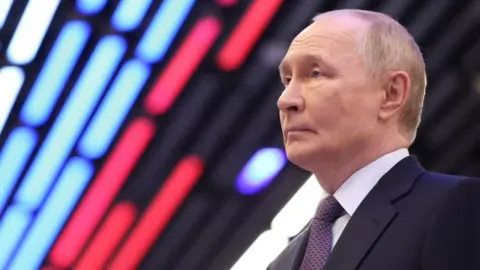Sometimes it's not what's said that makes the biggest impression.
It's the reaction.
In the Russian Far East, Vladimir Putin delivered a warning to the West: don't even think about sending soldiers - and that includes peacekeepers - to Ukraine.
If some troops appear there, the Russian president said, especially now while the fighting's going on, we proceed from the premise that these will be legitimate targets for destruction.
The audience at an economic forum in Vladivostok burst into applause, welcoming the Kremlin's threat to destroy Western troops.
This came just a day after Kyiv's allies committed to establishing a post-war reassurance force for Ukraine.
Notably, the Kremlin’s rhetoric reflects its broader strategy: seeking peace only on its terms. Putin has proposed to meet Ukraine's President Volodymyr Zelensky, but only in Moscow, marking another instance of dismissive diplomacy aimed at shaping perceptions of power and control.
This uncompromising stance is driven by several key factors, including a belief in Russian military initiative, successful diplomatic engagements with allies like China and India, and perceived failures of Western spheres to isolate Russia. Recent interactions with U.S. leadership further embolden this stance as Putin finds opportunities to maintain a narrative of strength.
The comment that he sees a light at the end of the tunnel hints at a possible Russian victory as the desired outcome - a construct that diverges sharply from Ukraine and its allies' objectives of ensuring security and preventing future aggressions.
Yet, with both sides entrenched in their views, the prospect for peace remains a distant ambition.


















